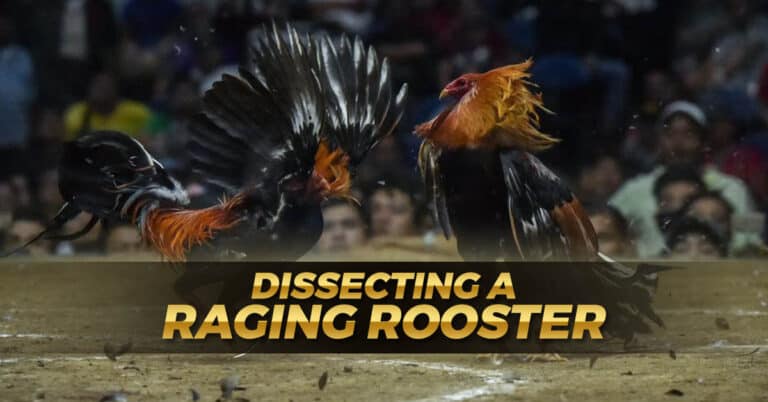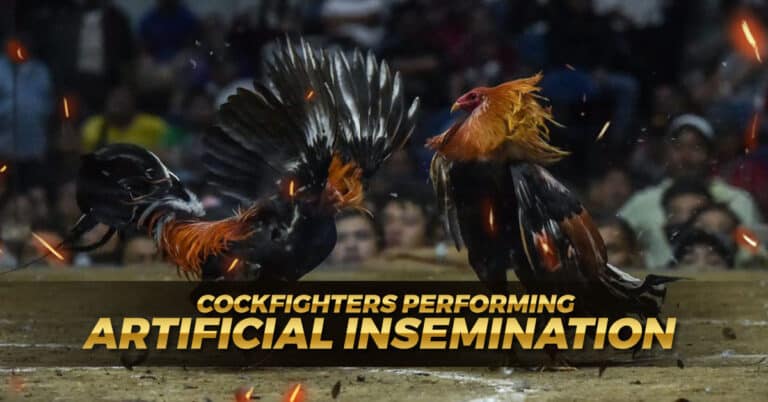Gamefowl Farm Common Diseases During Weather Change
Sabong International helps gamefowl breeders, know that birds are vulnerable to various diseases. And, as much as we try to protect them, weather changes can affect their overall health and well-being. In this article, we will discuss the common diseases that gamefowl farms face during weather changes and how to prevent them from affecting our flocks.

Gamefowl Malaria: Causes, Symptoms, Treatment, and Prevention
Gamefowl are a popular breed of chicken that are bred and raised for their aggressive nature, fighting skills, and competitive spirit. Unfortunately, these birds are also susceptible to a variety of diseases, one of which is gamefowl malaria. This article will explore what gamefowl malaria is, what causes it, how to recognize its symptoms, and how to treat and prevent it.
Understanding Gamefowl Malaria
Gamefowl malaria is a parasitic disease that is caused by Plasmodium gallinaceum, a protozoan parasite. The disease is spread by the bites of infected mosquitoes, which carry the parasite in their saliva. Once the mosquito bites a bird, the parasite enters the bloodstream and begins to replicate, causing the disease to spread.

Causes of Gamefowl Malaria
As mentioned above, gamefowl malaria is caused by the Plasmodium gallinaceum parasite, which is spread by the bites of infected mosquitoes. However, there are several factors that can increase the likelihood of a bird becoming infected. These include:
Symptoms of Gamefowl Malaria
The symptoms of gamefowl malaria can vary depending on the severity of the infection. Some birds may show no symptoms at all, while others may exhibit a range of symptoms, including:
Treatment of Gamefowl Malaria
If you suspect that one of your birds has gamefowl malaria, it is important to seek veterinary care immediately. The vet will perform a blood test to confirm the diagnosis and then prescribe a course of treatment, which may include:
In addition to medication, it is important to provide your bird with a clean and stress-free environment, as well as a nutritious diet to help boost their immune system.
Prevention of Gamefowl Malaria
Preventing gamefowl malaria requires a multi-faceted approach that includes:
Gamefowl Farm Weather Change: Tips for Keeping Your Birds Healthy
As a gamefowl farmer, one of the most important aspects of keeping your birds healthy is monitoring and adjusting to changes in the weather. Sudden weather changes can have a significant impact on your birds, affecting their health and productivity.
Gamefowl farming is a highly specialized industry that requires attention to detail and careful management. One of the biggest challenges that gamefowl farmers face is the impact of weather changes on their birds. Sudden changes in temperature, humidity, and other environmental factors can lead to stress, disease, and reduced productivity. In this article, we will provide you with some tips to help you keep your birds healthy and productive during weather changes.

Understanding The Impact of Weather Changes on Gamefowl
Gamefowl are highly adaptable birds that can thrive in a variety of climates. However, sudden changes in the weather can cause stress and lead to a variety of health issues. For example, extreme heat can cause dehydration, heat stress, and reduced egg production. On the other hand, extreme cold can cause respiratory infections, frostbite, and reduced egg production.
Tips for keeping your gamefowl healthy during weather changes
Monitor the Temperature
One of the most important things you can do to keep your gamefowl healthy during weather changes is to monitor the temperature. Invest in a good quality thermometer and keep an eye on the temperature inside your coop. Make sure that the temperature is within the recommended range for your birds. For example, most gamefowl breeds do well in temperatures between 60-75°F.
Provide adequate ventilation
Good ventilation is essential for maintaining a healthy environment for your birds. Proper ventilation helps to remove excess moisture and ammonia from the coop, which can lead to respiratory issues. Make sure that your coop has enough vents and that they are placed in the right location to provide good airflow.
Adjust feed and water
During extreme weather conditions, your birds’ feed and water requirements may change. For example, during hot weather, your birds may drink more water, and during cold weather, they may need more feed to maintain their body temperature. Make sure that you are providing your birds with enough feed and water to meet their needs.

Watch for signs of stress
During weather changes, your birds may experience stress, which can lead to a variety of health issues. Watch for signs of stress such as lethargy, reduced appetite, and decreased egg production. If you notice any of these signs, take action immediately to address the problem.
Provide shade and shelter
During hot weather, provide your birds with shade to help them stay cool. You can use shade cloth, tarps, or other materials to create a shaded area in the coop. During cold weather, provide your birds with shelter to protect them from the wind and rain. Make sure that your coop is well-insulated and that your birds have access to dry bedding.










